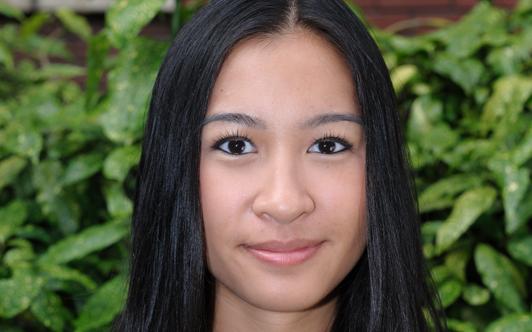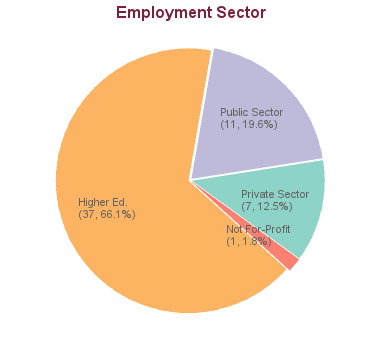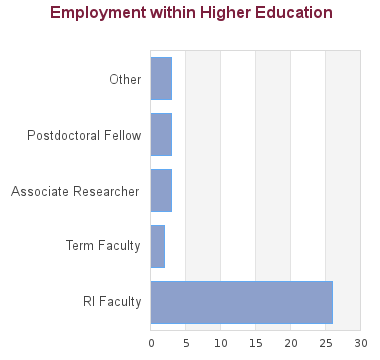
Lianping Ti
Job Title
Research Scientist
Employer
BC Centre for Excellence in HIV/AIDS
Applicants to Master’s and Doctoral degrees are not affected by the recently announced cap on study permits. Review more details
The School of Population and Public Health offers a research-oriented PhD program that enables students with a masters degree to advance their knowledge and skills in epidemiological and biostatistical methods. Students will further their research training by applying these methods to independent thesis research under the supervision of a faculty member. Students can pursue thesis research in a wide variety of topics related to the health of populations and the delivery of health services.
The Faculty of Graduate and Postdoctoral Studies establishes the minimum admission requirements common to all applicants, usually a minimum overall average in the B+ range (76% at UBC). The graduate program that you are applying to may have additional requirements. Please review the specific requirements for applicants with credentials from institutions in:
Each program may set higher academic minimum requirements. Please review the program website carefully to understand the program requirements. Meeting the minimum requirements does not guarantee admission as it is a competitive process.
Applicants from a university outside Canada in which English is not the primary language of instruction must provide results of an English language proficiency examination as part of their application. Tests must have been taken within the last 24 months at the time of submission of your application.
Minimum requirements for the two most common English language proficiency tests to apply to this program are listed below:
Overall score requirement: 100
Reading
22
Writing
21
Speaking
21
Listening
22
Overall score requirement: 7.0
Reading
6.5
Writing
6.5
Speaking
6.5
Listening
6.5
Some programs require additional test scores such as the Graduate Record Examination (GRE) or the Graduate Management Test (GMAT). The requirements for this program are:
The GRE is required by some applicants. Please check the program website.
All applicants have to submit transcripts from all past post-secondary study. Document submission requirements depend on whether your institution of study is within Canada or outside of Canada.
A minimum of three references are required for application to graduate programs at UBC. References should be requested from individuals who are prepared to provide a report on your academic ability and qualifications.
Many programs require a statement of interest, sometimes called a "statement of intent", "description of research interests" or something similar.
Students in research-based programs usually require a faculty member to function as their thesis supervisor. Please follow the instructions provided by each program whether applicants should contact faculty members.
Permanent Residents of Canada must provide a clear photocopy of both sides of the Permanent Resident card.
All applicants must complete an online application form and pay the application fee to be considered for admission to UBC.
| Fees | Canadian Citizen / Permanent Resident / Refugee / Diplomat | International |
|---|---|---|
| Application Fee | $114.00 | $168.25 |
| Tuition * | ||
| Installments per year | 3 | 3 |
| Tuition per installment | $1,838.57 | $3,230.06 |
| Tuition per year (plus annual increase, usually 2%-5%) | $5,515.71 | $9,690.18 |
| Int. Tuition Award (ITA) per year (if eligible) | $3,200.00 (-) | |
| Other Fees and Costs | ||
| Student Fees (yearly) | $1,116.60 (approx.) | |
| Costs of living | Estimate your costs of living with our interactive tool in order to start developing a financial plan for your graduate studies. | |
Applicants to UBC have access to a variety of funding options, including merit-based (i.e. based on your academic performance) and need-based (i.e. based on your financial situation) opportunities.
From September 2024 all full-time students in UBC-Vancouver PhD programs will be provided with a funding package of at least $24,000 for each of the first four years of their PhD. The funding package may consist of any combination of internal or external awards, teaching-related work, research assistantships, and graduate academic assistantships. Please note that many graduate programs provide funding packages that are substantially greater than $24,000 per year. Please check with your prospective graduate program for specific details of the funding provided to its PhD students.
All applicants are encouraged to review the awards listing to identify potential opportunities to fund their graduate education. The database lists merit-based scholarships and awards and allows for filtering by various criteria, such as domestic vs. international or degree level.
Many professors are able to provide Research Assistantships (GRA) from their research grants to support full-time graduate students studying under their supervision. The duties constitute part of the student's graduate degree requirements. A Graduate Research Assistantship is considered a form of fellowship for a period of graduate study and is therefore not covered by a collective agreement. Stipends vary widely, and are dependent on the field of study and the type of research grant from which the assistantship is being funded.
Graduate programs may have Teaching Assistantships available for registered full-time graduate students. Full teaching assistantships involve 12 hours work per week in preparation, lecturing, or laboratory instruction although many graduate programs offer partial TA appointments at less than 12 hours per week. Teaching assistantship rates are set by collective bargaining between the University and the Teaching Assistants' Union.
Academic Assistantships are employment opportunities to perform work that is relevant to the university or to an individual faculty member, but not to support the student’s graduate research and thesis. Wages are considered regular earnings and when paid monthly, include vacation pay.
Canadian and US applicants may qualify for governmental loans to finance their studies. Please review eligibility and types of loans.
All students may be able to access private sector or bank loans.
Many foreign governments provide support to their citizens in pursuing education abroad. International applicants should check the various governmental resources in their home country, such as the Department of Education, for available scholarships.
The possibility to pursue work to supplement income may depend on the demands the program has on students. It should be carefully weighed if work leads to prolonged program durations or whether work placements can be meaningfully embedded into a program.
International students enrolled as full-time students with a valid study permit can work on campus for unlimited hours and work off-campus for no more than 20 hours a week.
A good starting point to explore student jobs is the UBC Work Learn program or a Co-Op placement.
Students with taxable income in Canada may be able to claim federal or provincial tax credits.
Canadian residents with RRSP accounts may be able to use the Lifelong Learning Plan (LLP) which allows students to withdraw amounts from their registered retirement savings plan (RRSPs) to finance full-time training or education for themselves or their partner.
Please review Filing taxes in Canada on the student services website for more information.
Applicants have access to the cost estimator to develop a financial plan that takes into account various income sources and expenses.
60 students graduated between 2005 and 2013: 1 is in a non-salaried situation; for 3 we have no data (based on research conducted between Feb-May 2016). For the remaining 56 graduates:


These statistics show data for the Doctor of Philosophy in Population and Public Health (PhD). Data are separated for each degree program combination. You may view data for other degree options in the respective program profile.
| 2023 | 2022 | 2021 | 2020 | 2019 | |
|---|---|---|---|---|---|
| Applications | 37 | 41 | 52 | 40 | 42 |
| Offers | 16 | 21 | 22 | 22 | 19 |
| New Registrations | 12 | 13 | 16 | 16 | 11 |
| Total Enrolment | 91 | 91 | 91 | 84 | 76 |
Students in research-based programs usually require a faculty member to function as their thesis supervisor. Please follow the instructions provided by each program whether applicants should contact faculty members.
These videos contain some general advice from faculty across UBC on finding and reaching out to a supervisor. They are not program specific.
| Year | Citation |
|---|---|
| 2021 | Knowledge about inequities and social determinants of health points to opportunities for evidence-informed action across a range of contexts. Dr. Shaw's research offered a model to identify context-specific barriers to action such as lack of infrastructure, capacity, or political will and provided a menu of approaches to address these challenges. |
| 2021 | Dr. McKay explored housing, building, and neighbourhood influences on the experience of "home" for long-term tenants of Vancouver's Downtown Eastside. Her research highlighted housing and service needs of people with housing, and showed the benefits of a supportive service environment where tenants can feel in control of their lives. |
| 2021 | Dr. Rich's research identified important gaps in the state of the knowledge of chronic disease multimorbidity for transgender people, demonstrated feasibility of innovative methods to identify transgender samples in administrative data, and provided epidemiologic evidence of multimorbidity disparity for transgender people living with HIV. |
| 2021 | Dr. Ouyang showed how the number of participants needed in a clinical trial can be reduced by making use of information from outside the trial, by changing how people are assigned to the treatment groups, and by improving the way the data are analyzed. |
| 2021 | Dr. Lake studied the therapeutic and harm reduction applications of cannabis among marginalized people who use illicit drugs in Vancouver. Through demonstrating that cannabis has clinical potential for managing pain and opioid use disorder in this population, her work provided key data to inform future clinical experimentation involving cannabis. |
| 2020 | Dr. Sawatzky-Girling studied patient and family experiences of quality improvement. Her Relational Safety Framework shows that when feeling safe and valued, people welcome connections with others, fostering trust. Appreciating these liminal and ethical implications of QI implementation is a new strategy to advance health care system improvement. |
| 2020 | Dr. Hategeka examined health system quality and the contribution of several quality improvement interventions in Rwanda. He found that health system quality has improved over the past decade, however, further improvements are needed to improve maternal and child health. His research will inform future quality improvement strategies. |
| 2020 | Dr. Palis studied cocaine use among patients receiving treatment for opioid addiction at North America's first injectable opioid agonist treatment clinic. Her dissertation quantified and explained variation in patients' patterns of cocaine use. These findings can inform treatment and service provision for people who use both cocaine and opioids. |
| 2020 | Dr. Marchand examined patients' experiences with injectable opioid agonist treatment, a novel treatment for opioid use disorder. Her research showed that this treatment was optimized when patients and providers establish positive therapeutic relationships. This evidence informs a conceptualization of patient-centered care for this disorder. |
| 2020 | Dr. Jones examined the epidemiology of common mental disorders in workers with short term work disability due to musculoskeletal work injury. She found that workers with a common mental disorder were less likely to achieve sustained return to work. Her findings will inform work disability management policy and practice. |
The School of Population and Public Health (SPPH) offers both research-oriented and professional/course-based graduate programs.
Departments/Programs may update graduate degree program details through the Faculty & Staff portal. To update contact details for application inquiries, please use this form.

Great academic programs, great location: the distinct seasons and mild climate are among the reasons why graduate students choose to study here -- from the autumn leaves to cherry blossoms, witness the many colours Vancouver has to offer.